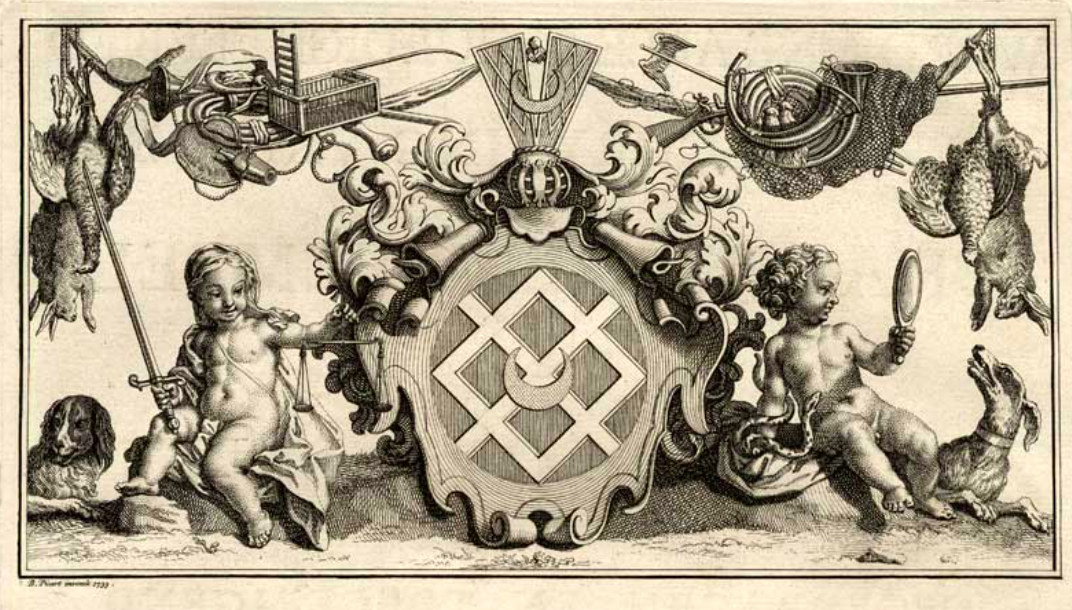Blanc de Chine Guanyin
A Kangxi period (1662-1722) Blanc de Chine figure of a seated Guanyin holding a child surrounded by a girl (Longnü), a boy (Sudhana) and dragon, 17th century, around 1680-1700, Dehua, China.
Dimensions: 22 cm height.
Reference: 10051
A Chinese Kangxi (1662-1722) porcelain Imari-style armorial wedding plate for the Dutch market, 18th century, around 1700-1720, Jingdezhen/Canton, China.
Chinese Imari
Dimensions: 24 cm. diameter.
 Secure payment
Secure payment
100% secure payment
 Worldwide shipping
Worldwide shipping
Fast delivery
 Free shipping in EU
Free shipping in EU
On all orders
 Professional packaging
Professional packaging
Professional order packaging
A Chinese Kangxi (1662-1722) porcelain Imari-style armorial wedding plate for the Dutch market, with the coat of arms of the family ‘Sautijn’ / ‘Sautyn’ (left) and an unidentified coat of arms. This is an example of one of the early objects that is typically ordered on command by (in this case) Dutch households.
Export type ‘chine de commande’ plates were already made for the Portuguese during the 16th and 17th centuries, but on a very small scale. Throughout the 18th century, it becomes more popular and common although it was mostly done for the wealthiest Western families of Europe. In the mid to later 18th century the decoration of armorial porcelain developed from filling up the central panel to a more sophisticated decoration where the coat of arms only fills the border.
Into the 19th century, it became common to only use small initials or to have the family coat of arms integrated into a standard pattern instead. It was by this time also more accessible and common for the higher class families.
This plate is an example of such an early and more rare 18th century armorial plate. Mostly we see ‘typical’ armorial plates in the Yongzheng (1722-1735) and Qianlong (1735-1796) period.
The Sautijn family originally comes from Antwerp. Towards the end of the 16th century they fled to the Netherlands. Two branches of the family sprout; the one in Amsterdam from 1593 and the one in Middelburg from 1620. The rich Amsterdam patrician branch produced, among others, Nicolaa Sautijn (1676-1743): mayor of Amsterdam (1718) and VOC director from 1733.
Also his brother Willem Sautijn (1678 -1731) was VOC director (from 1707). From the Middelburg branch, Johan Sautijn (1694-1738) went to De Oost around 1719. His career progressed favorably: from fiscal and chief to chief merchant (in 1728). In 1732 he was Governor of Makassar (Sulawesi Selatan). He may have ordered this type of coat of arms. However, the identified coat of arms does not belong to his first wife Adriana Johanna Dubbeldecop, nor that of his second wife Hermina Henriette Tolling, although that does show some similarity

'Coat of arms of the Dutch Sautijn Family out of a print of 1733'
source: pictura-prints.com
Reference: A similar plate can be found in J. Kroes, 'Chinese Armorial Porcelain for the Dutch Market', p. 117, cat no. 19.
For a comparable example see: Rob Michiels 28 June 2023, lot nr. 725.
Condition: Very good, only chips to the foot rim.
source: E. Vigário, "Chinese export porcelain from the 16th until the 19th century", 2015.
J. Kroes, 'Chinese Armorial Porcelain for the Dutch Market', 2007.
Frideris Lameris Amsterdam 2024.